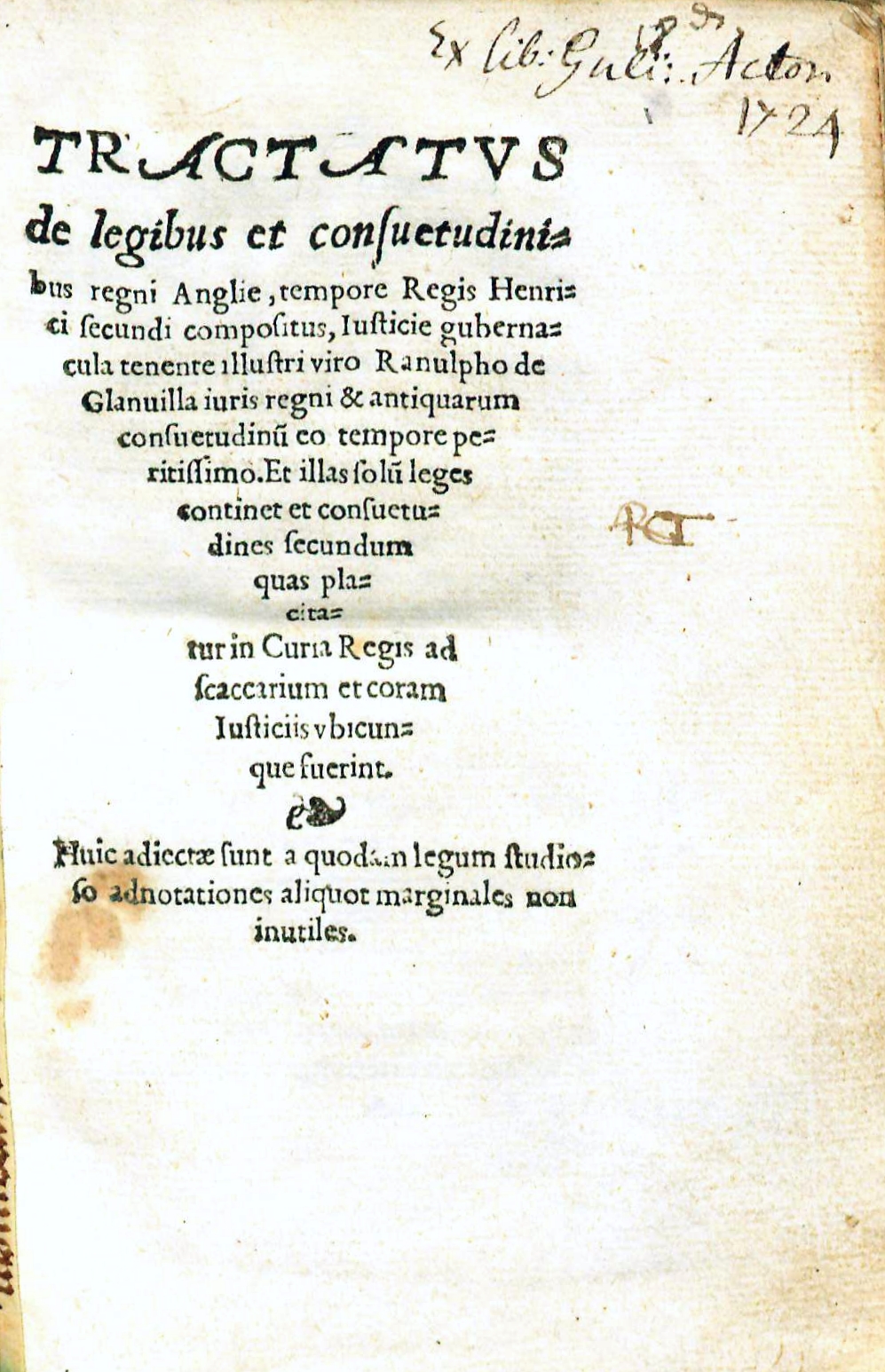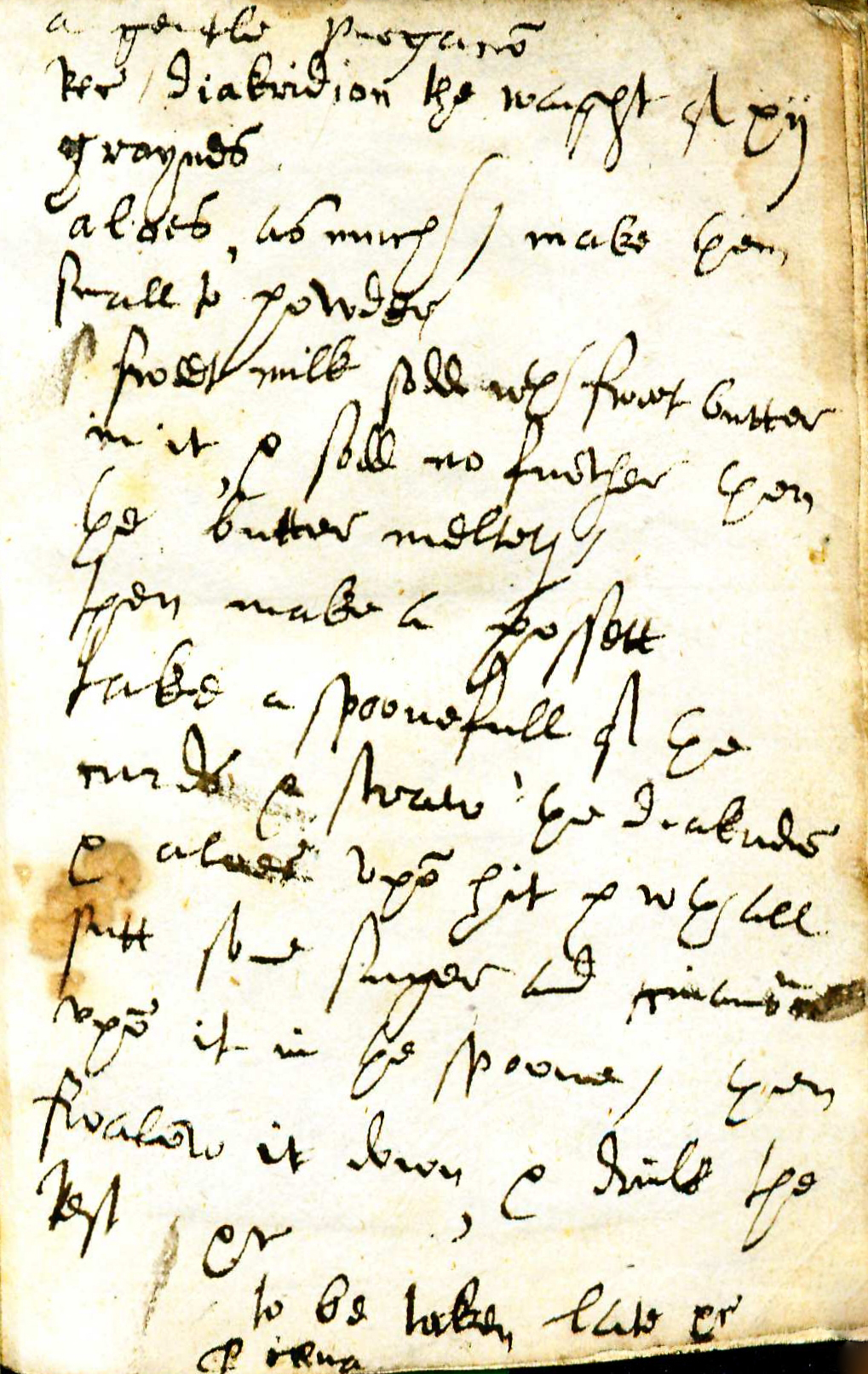Tractatus de Legibus et Consuetudinibus Regni Angliae
Tractatus de Legibus et Consuetudinibus Regni Angliae: Tempore Regis Henrici Secundi Compositus, Iusticie Gubernacula Tenente Illustri Viro Ranulpho de Glanvilla Iuris Regni & Antiquarum Consuetudinu[M] eo Tempore Peritissimo. et Illas Solu[M] Leges Continet & Consuetudines Secundum Quas Placitatur In Curia Regis Ad Scaccarium & Coram Iusticiis Ubicunque Fuerint. Huic Adiectae Sunt A Quodam Legum Studioso Adnotationes Aliquot Marginales Non Inutiles
by Ranulf de Glanville
| Tractatus | |
|
Title page from Tractatus, volume one, George Wythe Collection, Wolf Law Library, College of William & Mary. | |
| Author | Ranulf de Glanville |
| Published | London: in aedibus Richardi Totteli. Cum privilegio ad imprimendum solum |
| Date | 1554? |
| Edition | First printed |
| Language | Latin |
| Pages | 40, 116 leaves |
Ranulf de Glanville (1120s?–1190) was born in Suffolk Stratford, the son of Sir Hervey de Glanville, Chamberlain to King Stephen, and thus, Ranulf was a member of a very wealthy family. After serving as sheriff of Yorkshire from 1163 to 1170, he was appointed keeper of the honour of Richmond in 1171 and sheriff of Lancashire in 1174.[1] Other offices followed including justiciar of England in 1180. With this position, Glanville effectively became Henry II's chief minister during the later part of his reign. Glanville died at Acre in 1190 while on crusade with King Richard.
According to tradition, Glanville wrote Tractatus de Legibus et Consuetudinibus Regni Angliae (Treatise on the Laws and Customs of the Kingdom of England), the “earliest treatise on the common law,” [2] "a manual concerning royal judicial procedures."[3] The treatise was composed sometime after 1187 and many writers suggest that the attribution to Glanville is incorrect, suggesting perhaps E. de Narbrough, Henry II,[4] or Hubert Walter.[5] Regardless of the authorship, the volume "will not cease to be regarded as a venerable historical monument, the first collected rays of the old Common Law."[6]
Evidence for Inclusion in Wythe's Library
Description of the Wolf Law Library's copy
View this book in William & Mary's online catalog.
References
- ↑ John Hudson, "Glanville, Ranulf de (1120s?–1190)", Oxford Dictionary of National Biography (Oxford University Press, 2004- ), accessed November 21, 2013.
- ↑ William Holdsworth, A History of English Law (London: Methuen & Co., Sweet and Maxwell, 1936), 2: 189.
- ↑ Hudson, "Glanville, Ranulf de."
- ↑ J. G. Marvin, Legal Bibliography or a Thesaurus of American, English, Irish, and Scotch Law Books (Philadelphia: T. & J. W. Johnson, Law Booksellers, 1847), 336.
- ↑ Holdsworth, A History of English Law, 189.
- ↑ Marvin, Legal Bibliography, 337.

